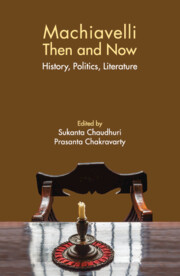11 - Thinking with Animals: Machiavelli’s L’asino and the Metamorphoses of Power
Published online by Cambridge University Press: 21 January 2022
Summary
If a lion could talk, we wouldn't be able to understand it.
—Ludwig Wittgenstein, Philosophical InvestigationsWhat is man, if he is always the place—and, at the same time, the result—of ceaseless divisions and caesurae?
—Giorgio Agamben, The OpenAnimals in Machiavelli are not really animals: they are tools he deems ‘good to think with’. In this he is by no means exceptional, since the same habit characterizes Western political and philosophical thought from antiquity, and the traits that Machiavelli ascribes to the animals he so frequently cites belong to a well-attested rhetorical and moral tradition. Nevertheless, as Leo Strauss pointed out in 1958, Machiavelli's insistence in the notorious eighteenth chapter of Il Principe that the prince should imitate the lion and the fox involves a new attention to human kinship with animals, one that can only be articulated by setting himself up as a centaur, ‘a Chiron of an entirely new kind’. For Machiavelli, humanism is not enough, says Strauss: ‘[T]he imitation of the beast takes the place of the imitation of God.’ In his unfinished poem in terza rima, L’asino (begun in 1517), Machiavelli takes upon himself the more humble, but allegorically richer, garb of an ass, a creature whose importance to fifteenth- and sixteenth-century moral philosophy, iconography, and literature can scarcely be overestimated. At the same time, because the poem's incomplete state leaves the event of the speaker's own transformation unnarrated, L’asino as it stands covers a wide range of human–animal attributes, ending with an address by the exemplary subject of Circean enchantment, a man transformed into a pig.
Despite its brevity and incompleteness, L’asino is a complicated and ambitious poem, with an interesting history through the course of the sixteenth century. We first hear of it in Machiavelli's well-known letter to Lodovico Alamanni at Rome on 17 December 1517, where he expresses disappointment at being left out of Ariosto's list of poets and courtiers in the Proem to Canto 46 of Orlando Furioso (1516):
These past few days I have read Ariosto's Orlando Furioso, and truly the poem is beautifully devised, and in many places it is wonderful.
- Type
- Chapter
- Information
- Machiavelli Then and NowHistory, Politics, Literature, pp. 193 - 218Publisher: Cambridge University PressPrint publication year: 2022



